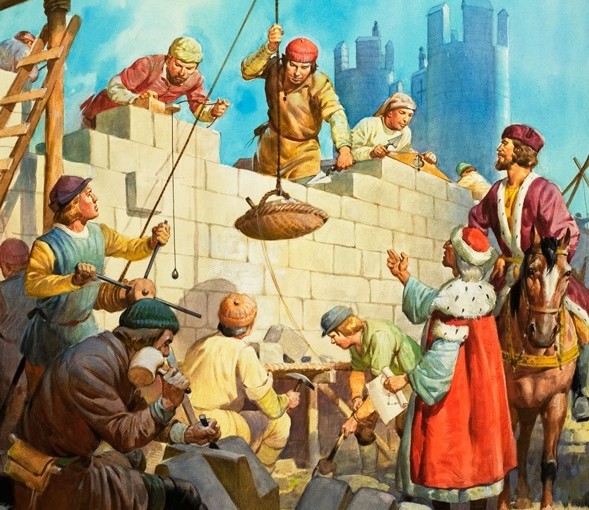Today’s reading link: Genesis 27; Matthew 26; Esther 3; Acts 26
One of our readers (Jane Harris who happens to be my loving mom) rightfully commented on Growing Leaders that Paul was the “before and after”. Thanks mom for your engagement on Bible Journal, we appreciate you!!!
In Acts 26 Paul describes his before and after. Paul’s before included imprisoning Christ followers as well as voting to put them to death. He punished them, tried to get them to curse (blaspheme) Jesus, was full of rage, and forced them to flee to foreign cities. In 1 Timothy 1:15 Paul even refers to himself as the chief or foremost sinner. These attributes come to mind in describing Paul’s prior life: full of anger, hatred, rage, abusive, murderous thoughts, and pride. Then he met Jesus, literally – he met him, and chose to trust and follow him with all his heart, and everything changed. The before attributes transformed into a beautiful after: fully recognizable “fruit of the Spirit”.
“But the fruit of the Spirit is love, joy, peace, patience, kindness, goodness, faithfulness, gentleness, self-control; against such things there is no law.” – Galatians 5:22-23
There’s another before example in today’s reading in Matthew 26. Jesus’ disciples hung out with him, listened to his teaching, witnessed his miracles, and even declared that he was the Son of God. They were scared when Jesus was arrested, and instead of staying beside their teacher and proving their love, they left him. Peter (the same guy whose faith enabled him to walk on water) denies Jesus verbally, three times.
This behavior is evidence of a before situation; lives not yet filled with the Holy Spirit, and very similar to my life for many years. I had attended church as a kid, heard the teachings of Jesus, professed to follow him, professed verbally that he was the Son of God, and had been voluntarily baptized. The problem was that when it came down to it, I basically either ignored Jesus or left him out of fear, and denied him far more than three times (not verbally, but with my heart and life choices). I was dead in my sin, but God is rich in mercy…
“And you were dead in the trespasses and sins in which you once walked, following the course of this world, following the prince of the power of the air, the spirit that is now at work in the sons of disobedience— among whom we all once lived in the passions of our flesh, carrying out the desires of the body and the mind, and were by nature children of wrath, like the rest of mankind. But God, being rich in mercy, because of the great love with which he loved us, even when we were dead in our trespasses, made us alive together with Christ—by grace you have been saved” – Ephesians 2:1-5
One key difference between my before and after is my relationship with God. I had always had some belief that there was a God, but I couldn’t say I loved God or Jesus because we didn’t have a relationship. Can we love someone we don’t know? I don’t think so. The more I get to know God through a real relationship (for example: prayer, studying scripture, writing these journal entries) the more I realize how deeply he loves all of us, and I grow in my love for Him.
Considering these before and after situations, the word “unlikely” keeps coming to mind. God, through his love, mercy, and grace makes the seemingly impossible possible. It seemed unlikely that Saul (Paul) would become a Christ follower, but God had a different plan. It seemed unlikely the disciples would turn back to Jesus, but they did.
If you knew me in high school or college it would have seemed unlikely that I would get married and be a faithful husband, but I did get married and have remained faithful to the most amazing woman I have ever met. Thank you God. It seemed unlikely that I’d join a small group, fall in love with God’s word, or share my faith publicly on the internet, but I did. I say these things not to convince anyone that I’m a good person; I am a sinner and actually have wondered if I might be in competition with Paul for “chief sinner”. The thing is that I now see my sin as sin, and the more I realize how big and wrong sin is, the greater I see the magnitude of what Jesus did on the cross so that I can be forgiven.
This is my before and after. What’s yours?











